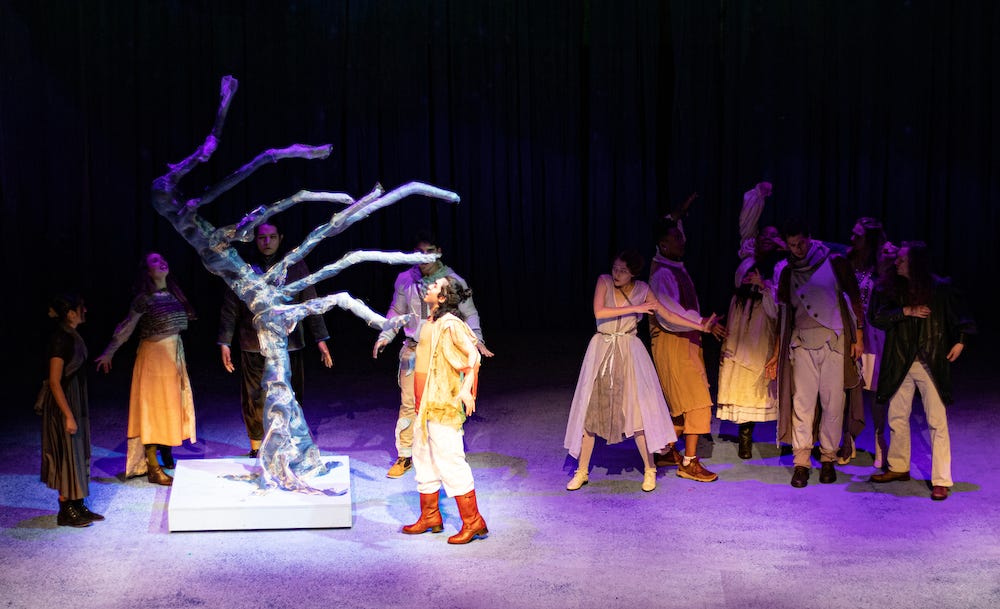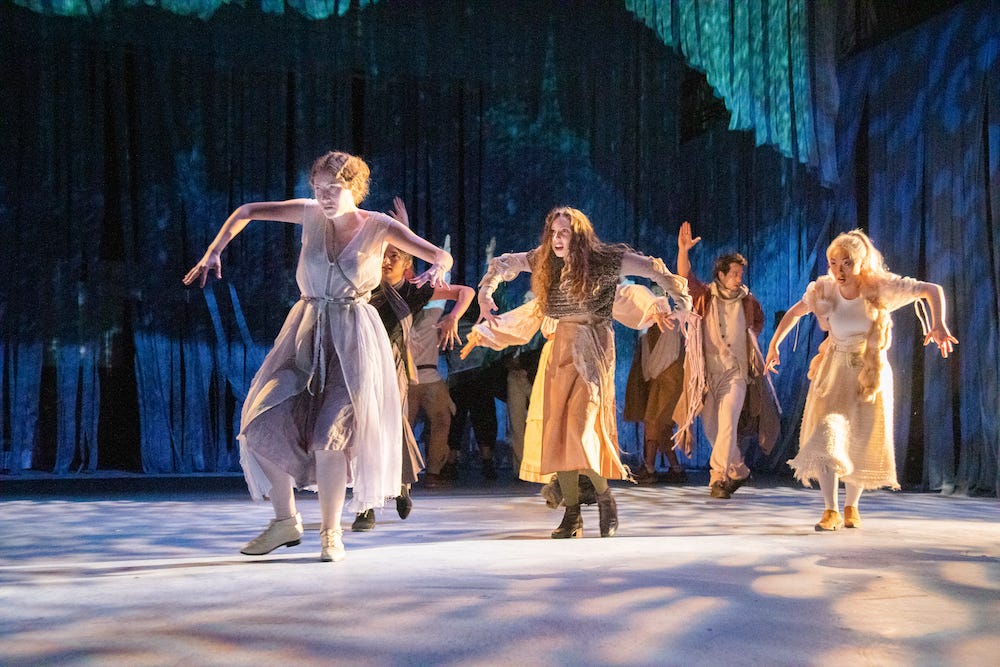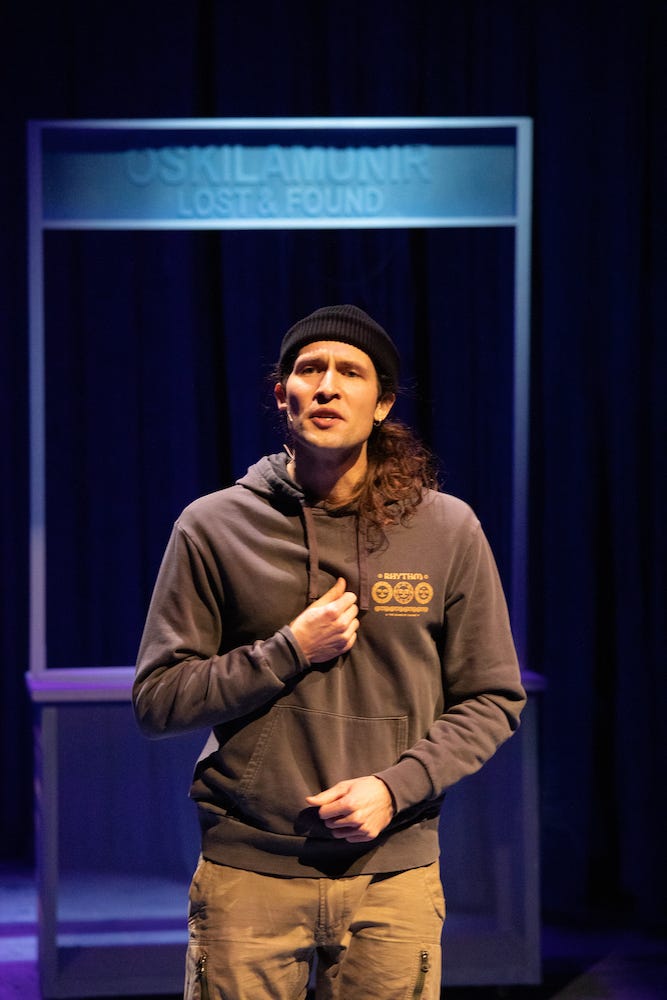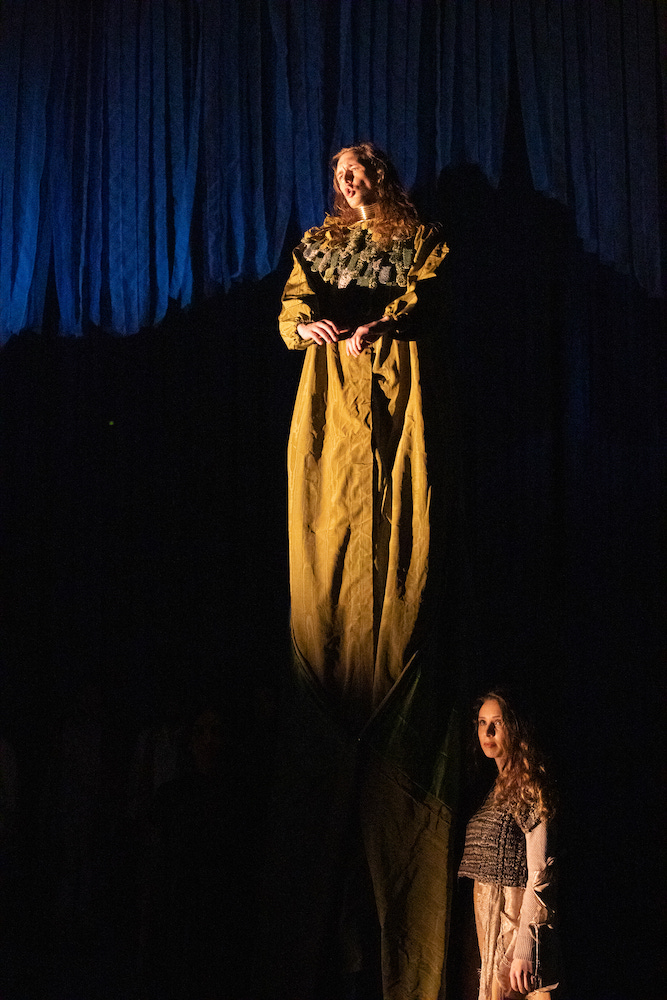The Operatic as Otherworldly
I have an allergy to things that call themselves operas but are not.
Not that I believe in musical gatekeeping. Or that opera is limited to the Verdi-Puccini-Rossini models of composition (obviously). Or that what constitutes opera can even be defined.
But if something is going to invoke the Impossible Art, as Matthew Aucoin calls it, it better be fucking operatic.
So, when I attended Iceland — an “interdisciplinary opera theater work” by O-Lan Jones and Emmett Tinley — at La Mama on Monday, March 27, I was incredulous, to say the least.
But by the end — Iceland ran about two hours, with intermission, by the way — I was so won-over that I’ve been talking about it with anyone who’ll listen.
Jones started Overtone Industries in 1980 to develop “multidisciplinary operas and music theater.” Iceland was also supported by Bare Opera, a female-founded, NYC-based “alternative opera company.”
But Iceland’s success has largely to do with its crackerjack pit musicians. The overture, interspersed with radio static, features Michael Alampi on flute, Sunny Sheu on violin, and Tiffany Wu on harp.
Jones puts all instruments to good use, with exchanges between Hanan Rahman on French horn and Christopher Cortez on cello.
The rhythm section is made up of Tamika Gorski on percussion, Storey Littleton on guitar, Olga Volkova on keyboard, and Joshua W. Marcum on bass.
Mila Henry, standing in for conductor Robert Kahn, held everything (and there was a lot!) together.
It took a little while to orient myself to the clashes between Jones’s score, which denotes the realm of the Icelandic Hiddenfolk, and Tinley’s songs, which represent the human domain.
Vala, sung by Nancy McArthur, is a disillusioned architect whose bag has been lost on the way to a conference up North. Mundi, sung by Oliver Demers, is a wilderness guide with a traumatic past.
Demers has a strange, distinctive, beautiful voice, a little reminiscent of Thom Yorke. McArthur’s husky, imperfect voice, expressively flat on higher notes, grew on me.
The songs do little to express the (already minimal) plot, instead expressing internal states. I appreciated the awkward silences in the Lost & Found scene. And while it was unclear to me exactly how Vala gets caught in an avalanche, or how the two are reunited at the end, it doesn’t really matter.
Opposite the humans, a chorus of classically trained voices represent the Hiddenfolk. They move slinkily around the bare-bones, artfully-lit set, pushing around a tree on wheels.
Angela Yam, a Puccini-esque soprano capable of incredible highs, was stellar as Heaven. As was the range-bending mezzo-soprano Perri Di Christina as The Dragon. But perhaps stealing the show was long-haired bass-baritone Matt Mueller as the larger-than-life Forest.
Casting indie-style singers across opera ones could be a balance nightmare. But somehow — perhaps by mic’ing the humans, and not mic’ing the Hiddenfolk — it worked. The effect was an equation of the operatic with the otherworldly (an idea that, I’ll add, is very Aucoin).
But I would not say that Iceland was exactly cohesive — on the contrary, it was purposefully eclectic. Maybe I enjoyed it because it felt a bit like listening to my Spotify on shuffle — opera arias interspersed with indie ballads.








